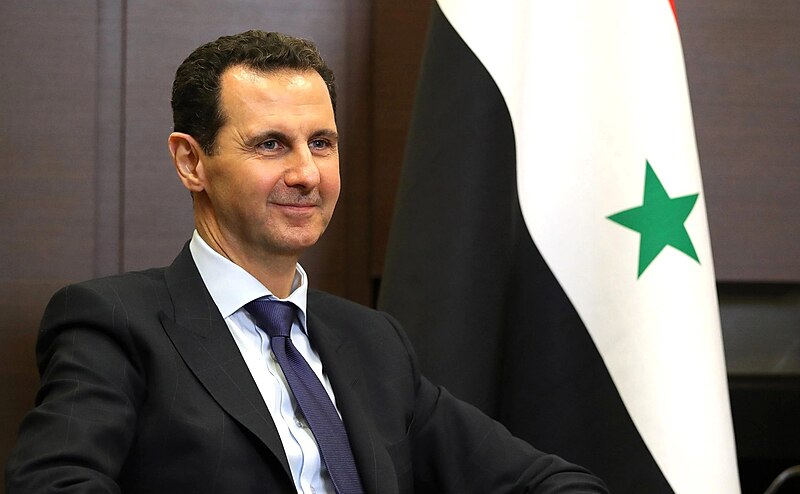Syria’s pro-Iranian Alawite minority has fallen. Syria’s ancient capital of Damascus was captured by the most formidable element of the anti-Assad coalition, the Hayat Tahrir al-Sham (HTS). The group is led by the Sunni Islamic fundamentalist Abu Mohammad al-Jolani. The opposition rebel coalition is a patchwork of several political, ethnic, and religious groups, including jihadist and pro-West factions.
HTS, which staunchly rejected any negotiations with the Assad government, remains the likely kingmaker in any post-Assad-ruled Syria. Despite Western media re-broadcasts of Jolani’s recent messages “We come in peace,” Julani is suspected of remaining a committed Islamist who has vowed to establish an Islamic Republic in Syria. Historically, he has been an avowed enemy of the West and Israel. Julani was formerly affiliated with al-Qaeda and its spinoff, the al-Nusra Front. Western countries are testing if HTS has moderated. It would be prudent for the West to remember that HTS stands for the liberation of the entire Levant, which, in its contemporary context, includes not only Syria, but Lebanon, Israel (including Judea and Samaria), and Jordan as well.
But will Syria look the same on maps drawn up by the UN in 1946 when the country was declared an independent republic? How much of today’s Syria will remain following its having been picked apart by regional contending powers? Some of these powers are winners, others losers, in this sudden and surprising turn of events. Turkey, a major supporter of HTS appears the one nation-state most committed and equipped to feed on the Syrian carcass.
Turkish President Recep Tayyip Erdoğan declared in a troubling November 26, 2024, speech in Ankara that the West’s progress is built on “blood, tears, massacres, genocide, and exploitation.” Despite his alliance with NATO, Erdoğan’s remarks could have been written by Turkey’s jihadi proxy in Syria. “The West progress…is to the exclusion of the East’s civilization of divine and humane love.” The day will come when Western civilization “collapses with a great clamor, and Eastern civilization will flourish and rise up.”1
Turkey has hosted at least three million Syrian refugees during the 12-year Syrian civil war. Moreover, Istanbul has been the site of several assemblies of Syrian opposition groups. Significantly, Turkish Prime Minister Recep Tayyip Erdogan’s government has dispatched several pro-Turkish Kurdish militia units to seize several stretches of Syrian territory along Turkey’s southern border. Such jingoist projects serve Erdogan’s desire to be elected to another term despite his Justice and Development Party’s decline in popularity.
Russia and Iran, the former regime’s erstwhile supporters, are the losers in the fall of the Assad dictatorship. Russia’s failure to attack rebel forces or provide air support to the fleeing ranks of Assad’s troops is emphatic proof that the Kremlin sees the handwriting on the wall. The Russians will need to negotiate with the new sheriff in town, presumably to oversee Russia’s withdrawal from its Syrian air bases and naval facility. Moscow’s other option might be to support a Syrian mini-state on the Mediterranean Coast. The Alawites hold a majority in the coastal region of Latakia.
Iran withdrew its Islamic Revolutionary Guard Corps (IRGC) Qods Force’s special advisors from Syria in still another setback for its strategy to light a circle of fire around Israel. The loss of Syria, combined with the Israeli evisceration of Iran’s proxies, Hamas and Hizbullah, has knocked the Islamic Republic even further back on its heels.
What Should Be Done Now?
Israel should leverage the regional chaos and confusion to bolster its own interests. It should not permit Turkey alone, to make territorial acquisitions and political gains. Israel should seize the UN-administered buffer zone between Israel and Lebanon opposite the Golan Heights. In fact, Israel should consider annexing any areas adjacent to its current Golan Heights territory, including Mt. Hermon peaks not under Israeli control now. These additional lands will be useful in defending against a prospective Islamization of Syria, which was a relatively secular country under Assad. Israel is in contact with the Syrian Druze community, which is close to the Israeli Druze community. The Syrian Druze recently occupied Syria’s southwestern region of Daara.
Syria’s large population of anti-Turkish Kurds might also serve as valuable allies to prevent, or at least impede, any determined imperial effort by Ankara to transform large portions of Syrian territory into Turkish fiefdoms. Kurdish areas in northern Syria have been under rebel attacks. Israel maintains good relations with the Kurds in northern Syria.
Of course, the incoming Trump administration will set its own policy in a post-Assad Syria. The United States has several mini-bases in northeastern Syria. American servicemen stationed in the area work with Kurdish militias and the Free Syrian Army. The Kurds help the U.S. forces to keep a lid on any revival attempts by Islamic State (ISIS) remnants.
U.S. President-elect Trump has already intimated that he is reluctant to get enmeshed in the Syrian imbroglio. Trump’s instincts also reflect the American people’s reluctance to get dragged into another forever war. However, President Trump, in consultation with Israeli allies, might devise a strategy that encourages American and Israeli enemies in crisis to struggle against one another while the forces of freedom remain vigilant and poised to exploit opportunities.
* * *
Notes
1 https://www.memri.org/tv/turkish-president-erdogan-western-civilization-will-collapse-we-will-flourish









